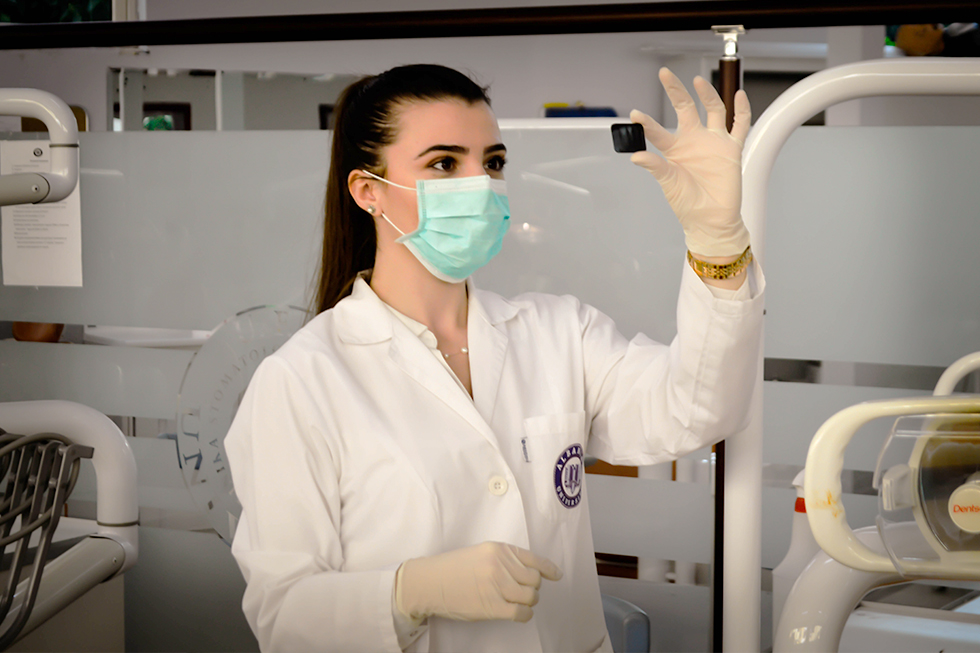Difference qualified vs competent Dutch healthcare
The regulation of the nursing profession fulfils an important function in monitoring and promoting quality of the healthcare sector. The demand for healthcare in the Netherlands is becoming increasingly complex, extendingbeyond the boundaries of systems and domains and requires more teamwork from care providers. This means that there is a high demand for qualified nurses as they must be able to fulfil the demands of their clients. Being qualified is one thing but due to the nature and complexity of nursing it is required for nurses to be competent at their job too. In the medical field, the words qualified and competent are often used interchangeably andalongside each other it can be difficult to tell them apart. However, in Dutch healthcare, there is a clear distinction between the two. In this blog we will go over the difference between being a qualified andcompetent nurse, and the importance to keep studying and training even after obtaining the Dutch nurse registration, BIG Register.

Qualified (bevoegd)
As a healthcare professional you are deemed to be qualified if you have gone through training. If you have completed an MBO (Secondary vocational education) or HBO (university of applied sciences) nursing programyou will be qualified to apply for a nursing job or internship. This means that you are authorized to perform injections. When you are a nurse assistant, for example, you can provide oral medication. Being authorized is based on a combination of received training and rules within an organization.
You are qualified to perform a medical act if you have obtained the required diplomas/certificates alongside any additional training to be able to perform the relevant act. You must demonstrably have sufficient theoretical knowledge to perform said action. You know what the action entails, what the risks are and what to do in case of incidents.
Who sets the requirements to be qualified?
In consultation with the Ministry of Health, Welfare and Sport (VWS), professional groups within the healthcare set the requirements needed for every specialization. They do this through their professional association such as the Nurses & Careers Netherlands (V&VN). In this way, the professional groups guarantee the quality of their care providers.
Competent (bekwaam)
Competent is about the healthcare professional as an individual. Is the healthcare professional skilled? Do theyknow enough? Competence consists of a knowledge component and a skills component. When injecting or catheterisation, for example, you must be aware of the current protocols about injecting, and everything related to it. This means that you must be able to perform the action yourself, in a proper, safe way. In some organisations you can acquire competence in the skills lab where you show your mentors that you have mastered a certain nursing technique.
If you are competent for a certain action, it means that you have the required certified documents and that you master the action. So, it is about the right skills to perform the action correctly. In addition, it is important that you perform the action regularly and that you have insight into the effects of the action. In general, if you have not performed an action for more than 5 years, you are no longer competent. You will then first have to master the action again under the supervision of, for example, a teacher or colleague. Nurses themselves remain responsible for maintaining their competence. If one does not consider oneself capable, or has doubts, they should not carry out the treatment and should discuss this with the responsible medical specialist.
Any BIG registered care professional may only perform reserved procedures if he is competent. A health care professional is competent if he:
- has knowledge of the procedure, the techniques, the purpose, the anatomy, the risks, pre- and aftercare and any complications;
- performs the action and additional activities, such as deciding and informing properly.
Healthcare providers acquire this knowledge and skills by, for example, following a legally recognized training course. But also, by continuing education, skills training or by performing an action more often.

Guidelines and risky actions
Institutions often use guidelines (protocols) for both reserved and risky actions. Such guidelines help the health care provider perform the action. Guidelines contribute to the quality of care. A guideline contains a checklist for the execution of reserved and risky actions. I t also states who is responsible for what and how to act if things threaten to go wrong.
For example, a guideline for nursing homes may state:
- that a nursing home makes an overview of the reserved procedures that are performed in the nursing home;
- that a nursing home identifies the competence and authority of nursing home employees;
- which due care criteria must be observed in a nursing home.
Can one become competent through e-learning?
Now a days, technology is so advanced and accessible that it can help us with doing research and reading up to soak in knowledge. E-learning can help nurses remain competent from a theorical point of view. However, when it comes to nursing one needs not only theoretical knowledge but also practical experience which can only be acquired by being present in the lab, nursery room, hospital, etc. E-learning itself is therefore insufficient but it can help as an addition to your current skillset.
Who monitors the qualified and competent health professionals in the Netherlands?
In the Netherlands, the statutory regulations that monitor and promote the quality of care and focus on theindividual healthcare professionals are the Medical Treatment Contracts Act (WGBO) and the Individual Health Care Professions Act (BIG Act). The WGBO obliges a healthcare professional to behave and act like a diligent care provider. The BIG Act creates conditions to monitor and promote the quality of the professional practice of the individual healthcare.
The BIG Act states that some medical procedures may only be performed independently by a small number of healthcare professionals. Such as a doctor, dentist, nurse, or midwife who can instruct others to perform certain actions. This is called an execution request. With the execution request, they place an order to nurses or nurse assistants, for example to give an injection. The BIG Act also stipulates that someone must be authorized AND competent to perform reserved actions.

What is more important: to be qualified or competent?
You are qualified by education or training. Whether you are competent is always an individual consideration. Being qualified does not mean that you are competent. Being qualified is clear and concise. Being competent is less concrete. This means that you must determine for yourself whether you can perform the action or not. A coach or colleague can also determine whether you are competent to perform the action.
Two examples to make that clearer:
If someone has just completed his or her MBO nursing diploma and he or she still feels insecure about a certain action, then he or she is NOT competent for that action. By practicing, assisting colleagues with the procedure, he or she can work on his or her sense of competence.
Feeling competent can also be conditioned. Suppose a nurse has just been told that her mother has breast cancer. At that point, he or she may not feel capable of inserting a chemo IV into a patient. In such cases, whether a nurse is competent or not, it is up to the supervisor to considerate consideration if it is a good idea to let that nurse perform a procedure, he or she is not comfortable with during that circumstance.
One cannot deduce whether qualified or competent is more important, it is the combination of the two that counts the most. Being qualified is necessary in the Dutch healthcare sector and being competent depends on the role and circumstance of any given situation.
Sources:
https://elearningmadeeasy.nl/hoe-zit-het-met-bevoegd-en-bekwaam-in-de-zorg/
https://www.zorgvoorbeter.nl/medicatieveiligheid/bekwaam-en-bevoegd
Are you a qualified and competent nurse?
Are you a nurse that’s looking to expand your horizon and interested in working in the Netherlands? Let EMTG help you build your health care career in The Netherlands. It is simply the greatest country to live and work in as a nursing professional.